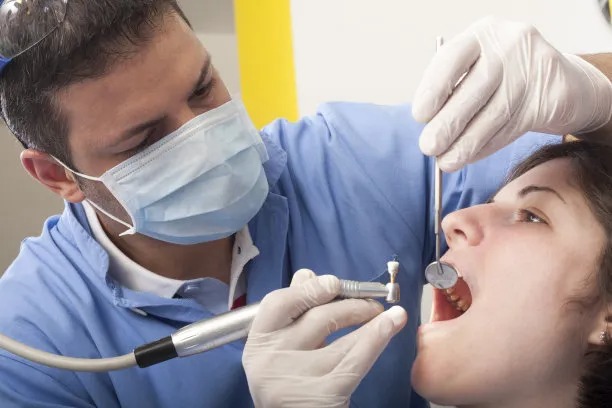Summary: Root canal treatment is an essential dental procedure aimed at maintaining optimal dental health by addressing infected or damaged tooth pulp. This article discusses crucial precautions that both dentists and patients should take to ensure successful and safe treatment outcomes. Emphasizing a thorough understanding of the procedure, effective communication between dentist and patient, rigorous sterilization practices, and post-treatment care, the following sections delve into how these factors contribute to a smooth root canal experience. By embracing these precautions, dental professionals can enhance their effectiveness while patients can enjoy better health and peace of mind.
1. Comprehensive Understanding of the Procedure

Before embarking on root canal treatment, its crucial for patients to have a solid understanding of what the process entails. This includes recognizing the reasons for undergoing the procedure, the steps involved, and potential outcomes. Dentists should dedicate time to explain the procedure transparently, ensuring that patients feel secure and informed.
A comprehensive understanding also extends to awareness of the symptoms indicative of possible tooth issues. Patients should be educated about warning signs such as persistent pain, swelling, or sensitivity to temperature changes, prompting timely visits to their dental professional.
Furthermore, patients should be made aware of the tools and technologies that modern dentistry employs during the treatment. Advanced imaging and digital technology can reinforce the importance of procedural efficacy, making patients feel more confident in their dental care provider.
2. Effective Communication between Dentist and Patient
Open and effective communication is foundational to the success of root canal treatment. Dentists should encourage patients to voice their concerns, anxieties, or questions before the procedure. This dialogue fosters a trusting relationship, which can help alleviate any fears associated with dental work.
Additionally, it is important for dentists to provide clear and concise instructions regarding pre-treatment preparations and post-operative care. Patients should be informed about dietary restrictions and the necessity of avoiding certain medications, as this can significantly influence the outcome of the treatment.
Follow-up communication after the treatment is equally vital. Dentists should offer guidance on recognizing signs of complications, ensuring patients feel supported throughout their recovery process. Following up can boost patient satisfaction and reinforce the importance of ongoing dental care.
3. Rigorous Sterilization and Equipment Maintenance
One of the fundamental aspects of ensuring safety during a root canal procedure is adhering to stringent sterilization protocols. Dental offices should strictly follow infection control guidelines to minimize the risk of cross-contamination. This includes the use of disposable instruments and proper cleaning of reusable tools.
Additionally, regular maintenance of dental equipment is essential for effective performance during the procedure. Dentists must ensure that all tools are functioning correctly and that they undergo routine inspections. A malfunctioning tool could lead to complications, making oral hygiene essential not just for health, but also for treatment success.
Moreover, the environment in which the procedure takes place should also be clean and organized. Maintaining a sanitized workspace helps create a reassuring atmosphere for patients, reinforcing their confidence in the treatment process.
4. Post-Treatment Care and Recovery
After a root canal treatment, patients play a significant role in their recovery. Following the dentists post-treatment instructions is critical to ensure a smooth healing process. Pain management strategies, including prescribed medications and home remedies, should be discussed thoroughly.
Patients should also be encouraged to monitor their symptoms closely within the days following treatment. If they notice unusual swelling, prolonged pain, or any other concerning signs, they should contact their dentist promptly to address potential complications.
Lastly, maintaining good oral hygiene during the recovery period is vital. Regular brushing, flossing, and adhering to follow-up appointments not only promote healing but also prevent future dental issues, contributing to long-term health and wellness.
Summary:
Effective root canal treatment hinges on several crucial precautions that ensure both safety and success. A thorough understanding of the procedure, open communication between dentist and patient, strict sterilization practices, and diligent post-treatment care are all essential elements. When these precautions are embraced by both the dental team and the patient, the likelihood of achieving optimal dental health significantly increases.
This article is compiled by Vickong Dental and the content is for reference only.
Vickong Dental
Vickong Dental is a large medical group established in Hong Kong in 2008 by professors from well-known medical universities in Guangdong and Hong Kong, as well as medical doctors from key national '985' universities (including Master's supervisors and senior professors). The chain of branches brings together expert dentists with PhDs and Master's degrees from Hong Kong and Mainland China, committed to providing high-quality dental treatment.
"Vickong Dental Practices the University Motto of 'Healing and Serving Society,' with a Stable Operation for Sixteen Years. It Has Been honored with Hong Kong Enterprise Leaders's Choice,' and is a Global Trusted Implant Center for the Nobel Implant System. Recommended by Hong Kong Metro Broadcast and Guangdong Television, it Serves Customers from Over Thirty Countries and Regions, Gaining the Trust and Favor of Citizens from the Guangdong-Hong Kong-Macau Greater Bay Area and Surrounding Cities.

Thousands of customers' unanimous praise
The most recognized and highly recommended dental service by customers in the Guangdong-Hong Kong-Macau Greater Bay Area
We Ensure You Receive Detailed Care and Attention Here
Hong Kong standards, Shenzhen prices, Your Trusted English-speaking dentists

Vickong Dental Medical-Grade Instrument Disinfection Process
Vickong Dental Medical-Grade Instrument Disinfection Process

Vickong Dental Chain: A Warm and Comfortable Environment for Treatment






Appointment Hours

Q&A
Why choose Vickong Dental?
Vickong Dental practices the university motto 「Medicine to Benefit Society」, with each branch bringing together highly qualified dentists with doctoral and master’s degrees from Hong Kong and the Mainland, and has maintained seventeen years of steady operation。Recipient of 「2024 Hong Kong Enterprise Leaders Brand」, 「2025 Hong Kong Enterprise Leaders Brand」, a Nobel Biocare Global Trusted Implant Center, and a brand recommended by Metro Radio Hong Kong and Guangdong TV。
To date, we have served customers from more than thirty countries and regions,earning exceptionally high word-of-mouth recognition and trusted recommendations from residents across the Guangdong-Hong Kong-Macao Greater Bay Area and surrounding cities
We have eight major branches in Zhuhai、Shenzhen,and a consultation and service assurance center in Hong Kong,so you can book a free consultation at any time for any questions,which is very reassuring.
If I do not accept the quotation after the CT scan, will I be charged??
No! As long as the actual treatment has not started, you will not be charged any fees.
Will there be any additional charges during the treatment process?
No, there won’t be any additional charges. Before treatment begins, we will clearly explain the treatment plan and its corresponding fees. Only after the patient agrees and signs the consent form will we proceed with the dental service.
Can I pay in Hong Kong dollars?
Yes. Vickong Dental accepts payment in Hong Kong dollars. The amount will be converted based on the exchange rate of the day, and the applicable rate will be clearly communicated to you in advance.
Can I reschedule my appointment at any time?
Yes. Please contact us via **WeChat** or **WhatsApp** as early as possible, providing your original appointment time and details, along with your preferred new date and time slot for rescheduling.













